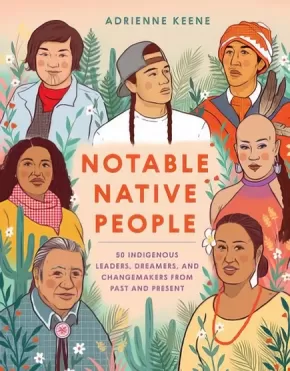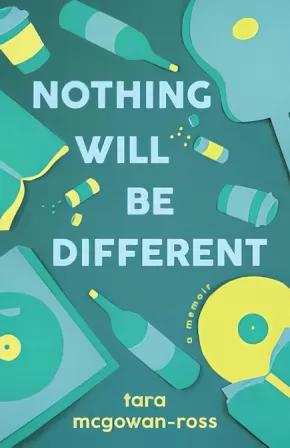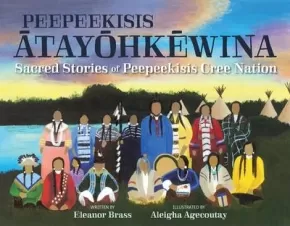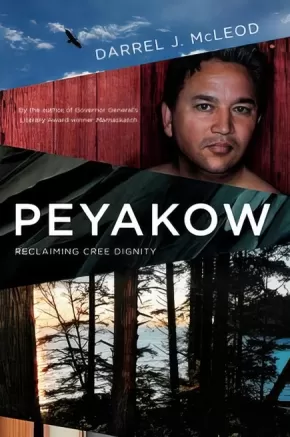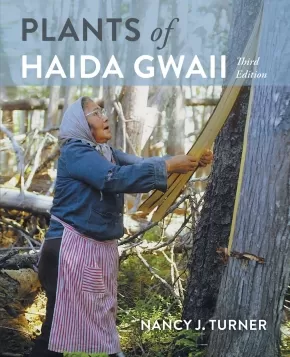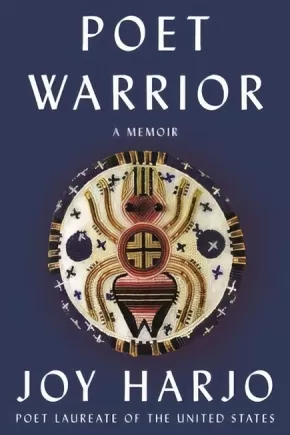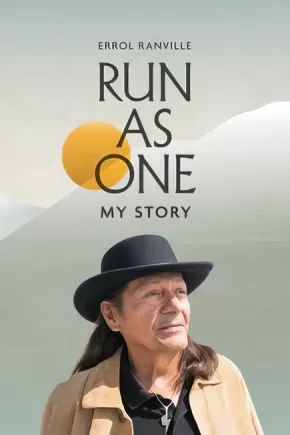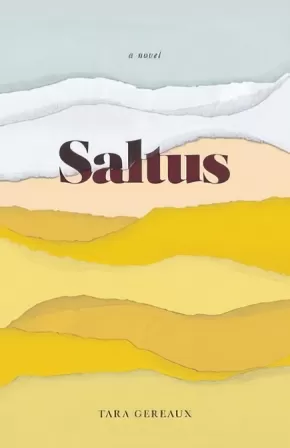
Teen Books
601
-
615
of
1617 Results;
Sort By
Go To
of 108
Notable Native People: 50 Indigenous Leaders, Dreamers, and Changemakers from Past and Present
$24.99
Artists:
Format:
Hardcover
Text Content Territories:
Indigenous American; Alaska Native; Native American; Indigenous Hawaiian;
ISBN / Barcode: 9781984857941
Synopsis:
Synopsis:
An accessible and educational illustrated book profiling 50 notable American Indian, Alaska Native, and Native Hawaiian people, from NBA star Kyrie Irving of the Standing Rock Lakota to Wilma Mankiller, the first female principal chief of the Cherokee Nation
Celebrate the lives, stories, and contributions of Indigenous artists, activists, scientists, athletes, and other changemakers in this beautifully illustrated collection. From luminaries of the past, like nineteenth-century sculptor Edmonia Lewis—the first Black and Native American female artist to achieve international fame—to contemporary figures like linguist jessie little doe baird, who revived the Wampanoag language, Notable Native People highlights the vital impact Indigenous dreamers and leaders have made on the world.
This powerful and informative collection also offers accessible primers on important Indigenous issues, from the legacy of colonialism and cultural appropriation to food sovereignty, land and water rights, and more. An indispensable read for people of all backgrounds seeking to learn about Native American heritage, histories, and cultures, Notable Native People will educate and inspire readers of all ages.
Additional Information
144 pages | 7.26" x 9.29" | Hardcover
Nothing Will Be Different: A Memoir
$21.99
Format:
Paperback
Text Content Territories:
Indigenous Canadian; First Nations; Mi'kmaq;
Reading Level: N/A
ISBN / Barcode: 9781459748736
Synopsis:
Synopsis:
A neurotic party girl's coming-of-age memoir about learning to live before getting ready to die.
Tara has it pretty good: a nice job, a writing career, a forgiving boyfriend. She should be happy. Yet Tara can’t stay sober. She’s terrible at monogamy. Even her psychiatrist grows sick of her and stops returning her calls. She spends most of her time putting out social fires, barely pulling things off, and feeling sick and tired.
Then, in the autumn following her twenty-seventh birthday, an abnormal lump discovered in her left breast serves as the catalyst for a journey of rigorous self-questioning. Waiting on a diagnosis, she begins an intellectual assessment of her life, desperate to justify a short existence full of dumb choices. Armed with her philosophy degree and angry determination, she attacks each issue in her life as the days creep by and winds up writing a searingly honest memoir about learning to live before getting ready to die.
Reviews
"This delightful book, appropriately enough, works like your favourite mixtape. It's got everything you want, and somehow it all fits. The arrangement is unexpected but, in retrospect, seems obviously right. Here is softness and pain, intimacy and revulsion, flourishing and sickness. And McGowan-Ross just sounds so good." — Sasha Chapin, author of All The Wrong Moves
"Tara McGowan-Ross is an unpretentious poet and philosopher weaving together meaning from the pain, grief, heartache, as well as simple joy of being alive. Nothing Will Be Different is a meditation on amor fati: the love of fate, the love of what is. By being with all of it: trauma, profound loss, the reality of death, addiction, precarity, the gig economy, hard work, love both dizzying and secure, sex, and insatiable desire, Tara shows us that transformation comes not through a battle against what is, but from the willingness to be changed by it." — Clementine Morrigan, author of Love Without Emergency
Additional Information
240 pages | 5.50" x 8.50"
Orange Shirt Day Book Package
$92.99
Artists:
Text Content Territories:
Indigenous Canadian; First Nations; Salish; Interior Salish; Secwepemc (Shuswap); Stswecem'c Xgat'tem;
ISBN / Barcode: 9781989122808
Synopsis:
Synopsis:
A collection of authentic Orange Shirt Day books from the founder of the Orange Shirt Day movement, Phyllis Webstad. Package includes four books and three accompanying lesson plans, The Orange Shirt Story, Phyllis's Orange Shirt, Orange Shirt Day and Beyond the Orange Shirt Story.
Educator Information
Includes picture books for children, as well as books for young adults. Review individual titles for more information about each include:
Additional Information
9.00" x 12.00"
Peepeekisis Ātayōhkēwina: Sacred Stories Of Peepeekisis Cree Nation
$19.95
Format:
Paperback
Text Content Territories:
Indigenous Canadian; First Nations; Cree (Nehiyawak); Plains Cree; Peepeekisis Cree Nation;
ISBN / Barcode: 9781988783635
Synopsis:
Synopsis:
These stories from the Peepeekisis Cree Nation tell of the Little People, Wesuketchuk, and the Sky People, and share the Plains Cree worldview, values, and spiritual beliefs.
“nipakosēyimon ēkā ta-wanihtāhk kinēhiyawātisinaw, tāpitaw awiyak ta-masinahahk ēkwan ta-pīkiskwātahk.” --Eleanor Brass, 1987
“I am hoping that our Indian culture will not be lost, that there will always be someone to write and speak about it. As the treaty reads, ‘As long as the grass grows and the water flows.’” —Eleanor Brass, 1987
Educator Information
Recommended for ages 3 to 12.
Dual-language: English and Plains Cree (y-dialect).
Pronunciation guide included.
Additional Information
96 pages | 11.00" x 8.50"
Peyakow: Reclaiming Cree Dignity, A Memoir
$29.95
Format:
Hardcover
Text Content Territories:
Indigenous Canadian; First Nations; Cree (Nehiyawak);
Grade Levels: 12; University/College;
ISBN / Barcode: 9781771622318
Synopsis:
Synopsis:
Mamaskatch, Darrel J. McLeod’s 2018 memoir of growing up Cree in Northern Alberta, was a publishing sensation—winning the Governor General's Literary Award for Non-Fiction, shortlisted for many other major prizes and translated into French and German editions. In Peyakow, McLeod continues the poignant story of his impoverished youth, beset by constant fears of being dragged down by the self-destruction and deaths of those closest to him as he battles the bullying of white classmates, copes with the trauma of physical and sexual abuse, and endures painful separation from his family and culture. With steely determination, he triumphs: now elementary teacher; now school principal; now head of an Indigenous delegation to the UN in Geneva; now executive in the Government of Canada—and now a celebrated author.
Brutally frank but buoyed throughout by McLeod’s unquenchable spirit, Peyakow—a title borrowed from the Cree word for “one who walks alone”—is an inspiring account of triumph against unimaginable odds. McLeod’s perspective as someone whose career path has crossed both sides of the Indigenous/white chasm resonates with particular force in today’s Canada.
Reviews
"Bravo! A job well done. You, my friend, are a very good writer." — Tomson Highway, February 2021
"This is the story of the remarkable professional life of a remarkable man. Whatever he worked on, including such important government files as the Nisga’a and Dene land settlements, he started out and remained a fierce champion of Indigenous rights. Wherever he travelled, he carried with him his past, the joys and tragedies of his own family, and the dignity and courage of his Cree ancestors. The book is a story of triumph, made particularly moving because McLeod doesn’t hide the demons he wrestles with as a two-spirited and Indigenous man." — Lorna Crozier, author of Through the Garden, February 2021
"McLeod boldly reconnects and reflects upon decades of lived experiences from familial, Cree traditional life of living off the land, to a professional (ultimately international) life dedicated to Indigenous rights and wellbeing. By reconnecting stories torn apart by poverty, tragic deaths, racism, homophobia and bureaucratic white privilege, McLeod performs a sacred act." — Betsy Warland, author of Oscar of Between, February 2021
Additional Information
240 pages | 6.00" x 9.00" | 8-page photo insert
Plants of Haida Gwaii: Third Edition
$29.95
Format:
Paperback
Text Content Territories:
Indigenous Canadian; First Nations; Haida;
ISBN / Barcode: 9781550179149
Synopsis:
Synopsis:
For many thousands of years the lands and waters of Haida Gwaii have been home to the Haida. Plants of Haida Gwaii, written with the cooperation and collaboration of Haida knowledge holders and botanical experts, is a detailed and insightful record of the traditional uses of over 150 species of native plants. Moreover, it explains the systems of knowledge and understanding that enabled the Haida to use the resources of their islands sustainably from one generation to the next over millennia.
The Haida names of these plants indicate their importance, as do the many narratives featuring them. From the ts’uu—massive western red-cedars—of the forests which provide wood used for canoes, house posts, poles and boxes, and bark carefully harvested for weaving mats, baskets and hats, to the ngaal—tough, resilient fronds of giant kelp—used to harvest herring eggs, the botanical species used by the Haida are found from the ocean to the mountain tops, and are as important today as ever before. With over 250 photographs and illustrations, this book is both beautiful and informative.
Additional Information
272 pages | 7.50" x 9.25"
Authenticity Note: As there are contributions from Haida knowledge holders, this work has been labelled as containing authentic Indigenous text. It is up to readers to determine if this work is authentic for their purposes.
Poet Warrior: A Memoir
$34.00
Format:
Hardcover
Text Content Territories:
Indigenous American; Native American; Muscogee (Creek);
Reading Level: N/A
ISBN / Barcode: 9780393248524
Synopsis:
Synopsis:
Three-term poet laureate Joy Harjo offers a vivid, lyrical, and inspiring call for love and justice in this contemplation of her trailblazing life.
Joy Harjo, the first Native American to serve as U.S. poet laureate, invites us to travel along the heartaches, losses, and humble realizations of her "poet-warrior" road. A musical, kaleidoscopic, and wise follow-up to Crazy Brave, Poet Warrior reveals how Harjo came to write poetry of compassion and healing, poetry with the power to unearth the truth and demand justice.
Harjo listens to stories of ancestors and family, the poetry and music that she first encountered as a child, and the messengers of a changing earth—owls heralding grief, resilient desert plants, and a smooth green snake curled up in surprise. She celebrates the influences that shaped her poetry, among them Audre Lorde, N. Scott Momaday, Walt Whitman, Muscogee stomp dance call-and-response, Navajo horse songs, rain, and sunrise. In absorbing, incantatory prose, Harjo grieves at the loss of her mother, reckons with the theft of her ancestral homeland, and sheds light on the rituals that nourish her as an artist, mother, wife, and community member.
Moving fluidly between prose, song, and poetry, Harjo recounts a luminous journey of becoming, a spiritual map that will help us all find home. Poet Warrior sings with the jazz, blues, tenderness, and bravery that we know as distinctly Joy Harjo.
Additional Information
240 pages | 5.50" x 8.25" | 10 Photographs | Hardcover
Rain Is Not My Indian Name
$12.50
Format:
Paperback
Text Content Territories:
Indigenous American; Native American;
ISBN / Barcode: 9780380733002
Synopsis:
Synopsis:
In a voice that resonates with insight and humor, New York Times bestselling author Cynthia Leitich Smith tells the story of a teenage girl who must face down her grief and reclaim her place in the world with the help of her intertribal community.
It's been six months since Cassidy Rain Berghoff’s best friend, Galen, died, and up until now she has succeeded in shutting herself off from the world. But when controversy arises around Aunt Georgia’s Indian Camp in their mostly white midwestern community, Rain decides to face the outside world again, with a new job photographing the campers for her town’s newspaper.
Soon, Rain has to decide how involved she wants to become in Indian Camp. Does she want to keep a professional distance from her fellow Native teens? And, though she is still grieving, will she be able to embrace new friends and new beginnings?
Reviews
"A wonderful novel of a present-day teen and her 'patch-work tribe." — School Library Journal
“Rain's observations are appealingly wry, and readers …will find food for thought in this exploration of cultural identity. ” — The Bulletin for the Center for Children's Books
Educator Information
Recommended for ages 13+
Cover art by Métis artist Natasha Donovan.
Author Insights: “Probably every first novel is at least quasi-autobiographical, and that’s certainly true of this one. Like Rain, I grew up (in part) in Northeast Kansas and had ties to community journalism. I likewise enjoy Web design.
More globally, it’s often remarked that this book is stylistically drawn more from Native literary traditions than most children’s books about American Indian characters. I think that’s part of my responsibility as a Native author, to honor and preserve those techniques and sensibilities.” -Cynthia Leitich Smith
Additional Information
144 pages | 5.31" x 8.00"
Righting Canada's Wrongs: Residential Schools: The Devastating Impact on Canada's Indigenous Peoples and the Truth and Reconciliation Commission's Findings and Calls for Action (PB) - 2nd Edition
$29.95
Format:
Paperback
Text Content Territories:
Indigenous Canadian; First Nations; Inuit; Métis;
ISBN / Barcode: 9781459416918
Synopsis:
Synopsis:
Over more than 100 years, the Canadian government took 150,000 First Nations, Métis, and Inuit children from their families and placed them in residential schools. In these schools, young people were assigned a number, forced to wear European-style clothes, forbidden to speak their native language, required to work, and often subjected to physical and psychological abuse. If they tried to leave the schools to return to their families, they were captured by the RCMP and forced back. Run by churches, the schools were paid for by the federal government. The last residential school closed in 1996.
It took decades for people to speak out in public about the devastating impact of residential schools. School Survivors eventually came together and launched court actions against the federal government and the churches. In 2008 the Canadian government apologized for the historic wrongs committed by the residential school system. The survivors’ lawsuits led to the Indian Residential Schools Settlement Agreement, the largest class-action settlement in Canadian history, and the establishment of the Truth and Reconciliation Commission. The Commission spent six years gathering testimony and discovering the facts about residential schools.
This book includes the text of the government’s apology and summarizes the Truth and Reconciliation Commission’s 94 Calls to Action, which offer the basis for a new relationship between the Canadian government, Indigenous people and non-Indigenous people.
Reviews
"If I were purchasing materials for a high school library, I would buy at least 2 copies, and I would urge Social Studies and Aboriginal Studies classroom teachers to have at least one copy on their bookselves. Perhaps the strongest work to date in the Righting Canada's Wrongs series, Residential Schools underscores the importance of the Truth and Reconciliation Commission's work... Highly Recommended." — CM: Canadian Review of Materials
Educator & Series Information
This book is part of the Righting Canada's Wrongs series.
Recommended for ages 13 to 18.
This book is available in French: Les pensionnats indiens: Effets dévastateurs sur les peuples autochtones du Canada et appels à l'action de la Commission de vérité et réconciliation.
Additional Information
128 pages | 8.50" x 11.53" | Paperback | 2nd, Updated Edition
Righting Canada's Wrongs: The LGBT Purge and the Fight for Equal Rights in Canada
$34.95
Format:
Hardcover
ISBN / Barcode: 9781459416192
Synopsis:
Synopsis:
From the 1950s to 1980s, the Canadian government persecuted LGBTQ+ employees and tried to erase them from the military, the RCMP and the civil service under the guise that they were a “security risk,” an event that became known as the LGBT Purge. Those who were suspected of being homosexual were put under government surveillance, interrogated and intimidated. They were fired from their jobs. Many quit to avoid being exposed. Some committed suicide as a result. In the 1980s, victims of the Purge fought back with a class-action suit against the government that helped shed light on the systemic discrimination that members of the LGBTQ+ community faced from the government and the rest of society. In 2017, the federal government issued a formal apology on behalf of the government and Canadian society for the treatment of members of the LGBTQ+ community.
In this highly visual book, author Ken Setterington presents the struggle for LGBTQ+ rights using photographs, first-person accounts and excerpts from archival documents. Significant events in the struggle include the establishment of Pride parades, the Bathhouse Raids, the decriminalization of homosexuality, the passing of the Canadian Charter of Rights and Freedoms, the LGBT Purge and the legalization of same-sex marriage.
While the government’s formal acknowledgement of past injustices started Canada on a better path toward equality, there is still work to be done. This book would be a welcome addition to any classroom or library’s social justice collection and will appeal to adults interested in LGBTQ+ rights in Canada.
Educator & Series Information
Recommended for ages 13 to 18.
The Righting Canada's Wrongs series is devoted to the exploration of the mostly unknown, and often shocking, stories of Canadian government's racist actions against various ethnic groups through our history, the fight for acknowledgment and justice, and the eventual apologies and restitution of subsequent governments.
Additional Information
96 pages | 9.01" x 11.02" | 300 photographs | Hardcover
Road Allowance Era
$21.95
Artists:
Format:
Paperback
Text Content Territories:
Indigenous Canadian; Métis;
ISBN / Barcode: 9781553799306
Synopsis:
Synopsis:
In the Road Allowance Era, Echo’s story picks up again when she travels back in time to 1885.
The Manitoba Act’s promise of land for the Métis has gone unfulfilled, and many Métis flee to the Northwest. As part of the fallout from the Northwest Resistance, their advocate and champion Louis Riel is executed. As new legislation corrodes Métis land rights, and unscrupulous land speculators and swindlers take advantage, many Métis settle on road allowances and railway land, often on the fringes of urban centres.
For Echo, the plight of her family is apparent. Burnt out of their home in Ste. Madeleine when their land is cleared for pasture, they make their way to Rooster Town, settling on the southwest edges of Winnipeg. In this final installment of her story, Echo is reminded of the strength and resilience of her people, forged through the loss and pain of the past, as she faces a triumphant future.
Educator & Series Information
Recommended for ages 12+.
A Girl Called Echo is a graphic novel series by Governor General Award-winning writer and author of The Seven Teaching Stories Katherena Vermette. This graphic novel series explores the life of a Métis teenager through illustrated storytelling. Each book follows Echo Desjardins and her travels back through time, which illuminates important periods and events Métis history in an engaging, visually stimulating way for teenage audiences.
This is Vol. 4 in the A Girl Called Echo series.
This book is available in French: Elle s'appelle Echo Tome 4: L'ère des réserves routières
Additional Information
48 pages | 6.50" x 10.00"
Run As One: My Story
$24.95
Format:
Paperback
Text Content Territories:
Indigenous Canadian;
Reading Level: N/A
ISBN / Barcode: 9781773370606
Synopsis:
Synopsis:
Errol Ranville has been running all his life: from chronic poverty and racism in rural Manitoba; a discriminatory music business; alcohol and drug addiction; and the responsibilities that come with being regarded as a role model. Though Errol has faced seemingly insurmountable barriers as an Indigenous performer in a predominately white music business, his band C-Weed & the Weeds released several #1 songs and went on to score JUNO nominations in 1985 and 1986. He was the recipient of the Lifetime Achievement Award at the Indigenous Music Awards in 2011. In his memoir Run as One, Errol embraces the role of trailblazer for the countless musicians that follow his path.
Reviews
"This is the story of how C-Weed became a legendary name in Indigenous music. Run As One traces the perseverance, heartbreak and inspiration that led Errol Ranville from extreme hardship to singing the soundtrack of so many of our lives." - Wab Kinew, author of The Reason You Walk
Additional Information
160 pages | 6.18" x 8.91"
Saltus
$22.95
Format:
Paperback
Text Content Territories:
Indigenous Canadian; Métis;
Reading Level: N/A
ISBN / Barcode: 9780889714007
Synopsis:
Synopsis:
Evocative of Miriam Toews’ A Complicated Kindness and Diane Warren’s Cool Water, Tara Gereaux’s novel, set in small-town Saskatchewan, dissects themes of Métis identity, female identity and motherhood, aging and regret, and finally, acceptance.
Nothing ever seems to happen in the small town of Saltus. At the Harvest Gold Inn and Restaurant off Highway 53, two waitresses spend their evening shifts delivering Salisbury steak specials and slices of pie to the regulars. But everything changes when Nadine, a headstrong single mother, and her teenager, Aaron, arrive at the Gold, where Aaron—who has repeatedly been denied appropriate gender-affirming medical care from the mainstream system—undergoes a near-fatal procedure performed by an unqualified and eccentric recluse who lives on the outskirts of Saltus.
The events that transpire that evening force each townsperson to look long and hard at themselves, at their own identities, and at the traumas and experiences that have shaped them. Told from multiple perspectives, Saltus reveals the complexities inherent in accepting the identities of loved ones, and the tragic consequences that unfold if they are ignored. It is a story about relationships with others, and, even more importantly, with ourselves.
Reviews
"Calm, measured and fearless, Gereaux skillfully, and with compassion, depicts a community in the aftermath of trauma. Based on true events, this work of fiction is both haunting and human. Gereaux’s strength is in her characters—you can’t help but feel their torments as if they were your own." — Lisa Bird-Wilson, February 2021
Additional Information
304 pages | 5.50" x 8.50" | Paperback
Si je disparais
$21.95
Format:
Hardcover
Text Content Territories:
Indigenous Canadian; First Nations; Anishinaabeg; Ojibway;
ISBN / Barcode: 9782925088219
Synopsis:
Synopsis:
« Mon nom est Brianna Jonnie. J’ai quatorze ans. Je suis autochtone. J’ai plus de chances de disparaître que mes pairs »En 2016, Brianna a écrit une lettre ouverte de dénonciation pour sensibiliser le public à la négligence des services de police dans la recherche des femmes autochtones disparues.Si je disparais est un roman graphique coup de poing, basé sur une histoire vraie, ou plutôt sur trop d’histoires vraies.La disparition et le meurtre de femmes et de filles autochtones ne sont PAS uniquement des problèmes autochtones canadiens. Ce sont des tragédies qui relèvent des droits humains partout dans le monde.
Educator Information
Recommended for ages 12+
Traduit par: Nicholas Aumais
This book is available in English: If I Go Missing
Additional Information
64 pages
sînapân kîskasâkâs: A Guide to Making Contemporary-Style Métis Ribbon Skirts
$24.95
Format:
Paperback
Text Content Territories:
Indigenous Canadian; Métis;
ISBN / Barcode: 9781926795966
Synopsis:
Synopsis:
sînapân kîskasâkâs: A Guide to Making Contemporary-Style Métis Ribbon Skirts will assist you in the creation of your own Métis style ribbon skirt. Authors, Bonny Johnson and Leah Marie Dorion guide you through the process with detailed instructions which are accompanied by photographs of each step. This resource comes with a companion DVD, and introductions from both authors on the historical and contemporary uses of these traditional Métis style ribbon skirts.
Educator Information
Grade Level: Secondary, Post Secondary, Adult
Sort By
Go To
of 108

